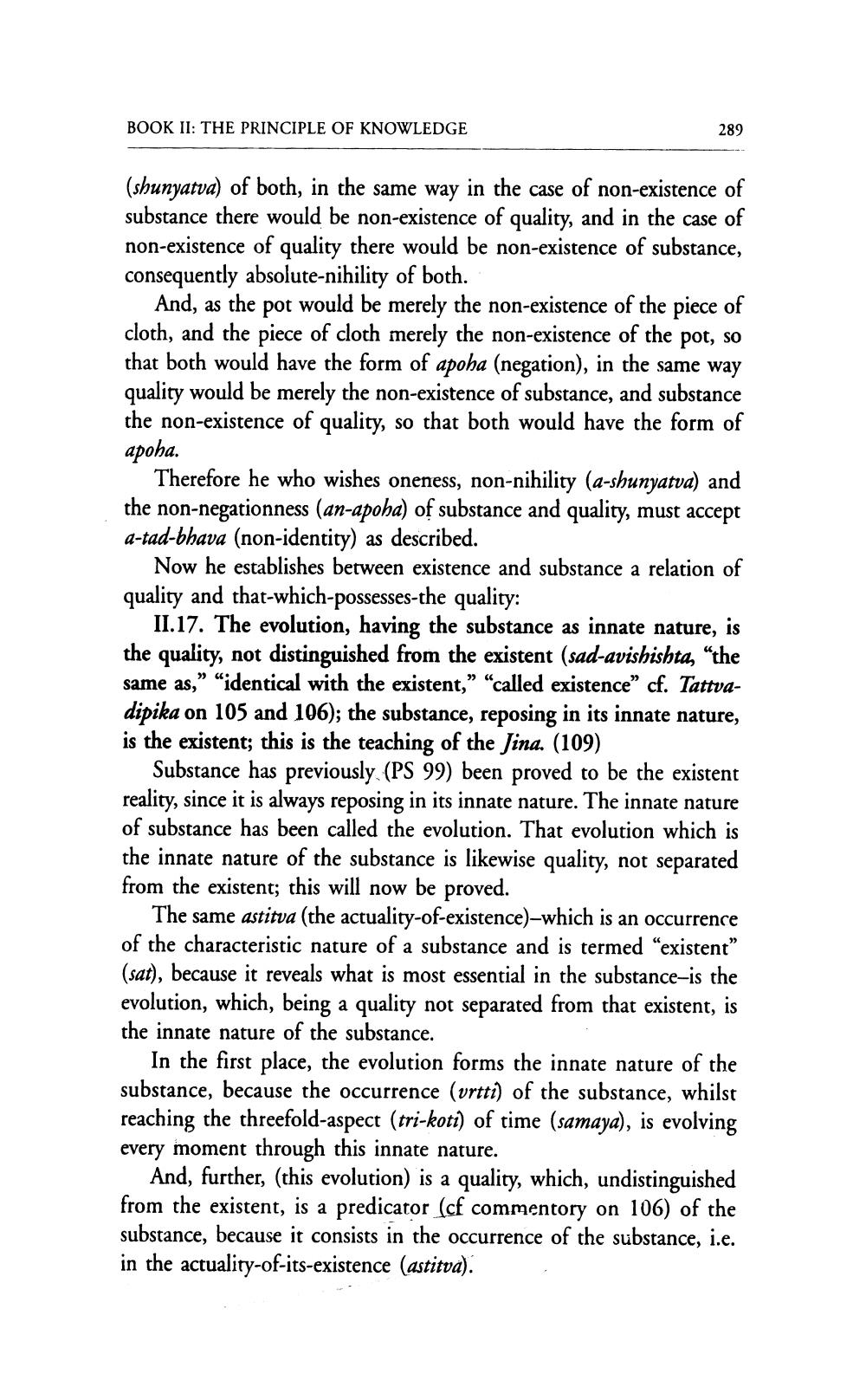________________
BOOK II: THE PRINCIPLE OF KNOWLEDGE
289
(shunyatva) of both, in the same way in the case of non-existence of substance there would be non-existence of quality, and in the case of non-existence of quality there would be non-existence of substance, consequently absolute-nihility of both.
And, as the pot would be merely the non-existence of the piece of cloth, and the piece of cloth merely the non-existence of the pot, so that both would have the form of apoha (negation), in the same way quality would be merely the non-existence of substance, and substance the non-existence of quality, so that both would have the form of apoha.
Therefore he who wishes oneness, non-nihility (a-shunyatva) and the non-negationness (an-apoha) of substance and quality, must accept a-tad-bhava (non-identity) as described.
Now he establishes between existence and substance a relation of quality and that-which-possesses-the quality:
II.17. The evolution, having the substance as innate nature, is the quality, not distinguished from the existent (sad-avishishta, "the same as," "identical with the existent," "called existence" cf. Tattvadipika on 105 and 106); the substance, reposing in its innate nature, is the existent; this is the teaching of the Jina. (109)
Substance has previously (PS 99) been proved to be the existent reality, since it is always reposing in its innate nature. The innate nature of substance has been called the evolution. That evolution which is the innate nature of the substance is likewise quality, not separated from the existent; this will now be proved.
The same astitva (the actuality-of-existence)-which is an occurrence of the characteristic nature of a substance and is termed "existent" (sat), because it reveals what is most essential in the substance-is the evolution, which, being a quality not separated from that existent, is the innate nature of the substance.
In the first place, the evolution forms the innate nature of the substance, because the occurrence (vrtti) of the substance, whilst reaching the threefold-aspect (tri-koti) of time (samaya), is evolving every moment through this innate nature.
And, further, (this evolution) is a quality, which, undistinguished from the existent, is a predicator (cf commentory on 106) of the substance, because it consists in the occurrence of the substance, i.e. in the actuality-of-its-existence (astitva).




